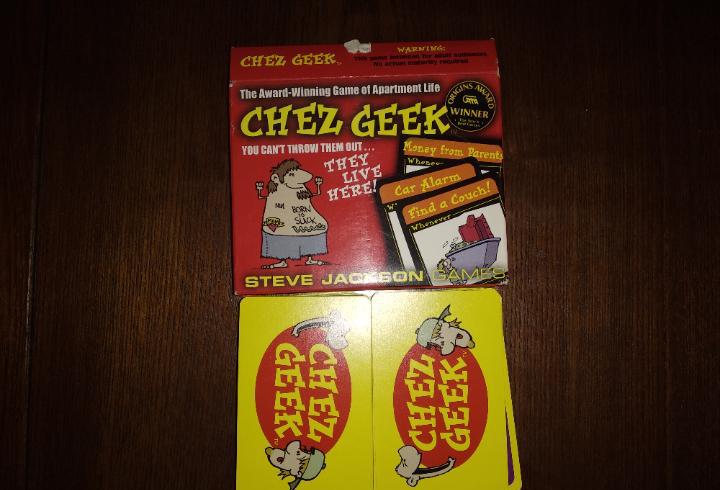During round
Listado top ventas during round

España
Juego Original en Inglés: Emperor Qin Shi Huang has passed away. To protect him in the afterlife, a great army in the form of statues of faithful warriors must be assembled to stand guard in the Emperor's tomb. You will be among those tasked with building this magnificent army.In Terracotta Army, you represent talented craftsmen and artists laboring to build the wondrous assembly of statues. During the game, you collect resources, upgrade your workers, and seek favor with the Emperor's advisors. Your goal is to play a crucial role in the process of creating the terracotta army, and your success is measured in victory points (VPs). During the game, you and your fellow players build the army together, but after the fifth round of the game is over, only one of you the one with the most points will stand as the winner.During the game, you place warrior miniatures within the mausoleum, forming groups. A group's miniatures may belong to multiple players as denoted by the player bases on those miniatures. Multiple separate groups consisting of the same type of miniature may exist within the mausoleum.You will have many opportunities to score points based on domination and presence. To achieve domination, you must be the only player with the most of the specific resource or type of statue currently being scored. (If you are the only player, you have domination.) To have presence, you must have at least one of the specific resource or type of statue currently being scored.At the end of the fifth round, the player with the most VPs wins.
Ver producto

Madrid (Madrid)
Chez Geek (english edition) Chez Geek (english edition) In this light, humorous, and fast-paced card game that parodies geek culture and co-habitation, players are roommates just trying to get through life with as little work as possible. At setup each player is dealt a Job card which lists their free time, income, a special ability that they possess and their Slack goal. Players are also dealt five Life cards. The space directly in front of a player is their Room, where cards will be played during the course of the game. Slack can be represented using any available chit or counter, but every player begins with a Slack total of zero. Players take turns as follows: -Draw Life cards until they have six in hand. (NOTE: Some Jobs vary this to five or seven cards.) -Make "variable" rolls. Some Job cards have variable free time or income; their values for this turn are decided in this phase (rolling a 1-3 gives them the first amount; rolling a 4-6 gives them the second). If there are any "uninvited" people in a player's room, he or she may also roll to "get rid of" them (by rolling a 4, 5 or 6) and either send each such person to another room or discard them (if they cannot be played to any other room). -If any of the player's in-hand Life cards are green Person cards, they may roll to "call" the person to their room. A successful roll (3-6) gets them invited in; otherwise, they are discarded. Some people are "uninvited" (causing bad things to happen), and may be placed without a roll in any player's room. (See above for "getting rid of" these people.) Pet cards, such as Cats (which don't require a roll to enter a room) and Dogs (which may or may not need to be "called") can also be played in this round. -For each unit of free time the player's Job card gives them, they may perform one action (play a red Activity card) or go shopping (play any number of blue Thing cards). Some of these cards may have a cost; the total cost for all cards played in a round cannot exceed the income given to them by their Job card. (NOTE: Free Time and Income may be modified by certain Whenever cards played on the player by themselves or other players.) -At the end of a turn, if a player has more than five cards in hand, the player must discard cards until they have five or fewer. If desired, players can discard all the way down to one card. (NOTE: It is also legal for a player to play ALL the cards in their hand and have NO cards at the end of a turn.) -Additionally, some Life cards are orange "Whenever" cards which can be played at any time. -Activity cards and Thing cards typically list a Slack value which is added to the player's Slack total, though some have random Slack totals and some have Slack totals which vary during the game. TV Activity cards and some Whenever cards can be used to cancel cards as they are being played, and some cause previously-played cards to be discarded. Some cards add or subtract Slack from every player's total, while others cause a player to change their Job card (and hence Slack goal). Many cards alter the effects of other cards. The first player whose Slack total equals or exceeds their Slack goal is the winner.
Ver producto

España (Todas las ciudades)
In The Golden Ages, you lead your civilizations through history. The game lasts four different eras, during which you develop technologies, create fine arts, erect buildings, and build wonders. You'll send explorers to discover the continents, found cities in distant lands, and send your soldiers into battles. The game lasts four rounds ("Eras"), during which the players: - show/discard the civilization that they will play during the Era; - discover new continents placing tiles on the map; - take turns doing actions (explore/found a city, erect a building, make arts, build a wonder, develop a techology, activate a building/wonder, attack another player, start a Golden Age). The first player starting a Golden Age during an Era choose an "History Judgement" card that states the way all the players will score in that round. Each player who started a Golden Age continues taking money at his turns until all other players have passed. There are many ways to score points (artists, history judgement, wonders, technologies, attacks, money, secret future technologies, etc.), and then also many different ways to achieve a victory. Will you succeed in evolving your civilization through history, overwhelming your opponents on the way to glory?
35,95 €
Ver producto

España (Todas las ciudades)
Mandrake root and scorpion tail; spongy mushroom and warty toad — these are the foundations of the alchemist's livelihood, science, and art. But what arcane secrets do these strange ingredients hide? Now it is time to find out. Mix them into potions and drink them to determine their effects — or play it safe and test the concoction on a helpful assistant! Gain riches selling potions to wandering adventurers and invest these riches in powerful artifacts. As your knowledge grows, so will your reputation, as you publish your theories for all to see. Knowledge, wealth, and fame can all be found in the murky depths of the alchemist's cauldron. In Alchemists, two to four budding alchemists compete to discover the secrets of their mystical art. Points can be earned in various ways, but most points are earned by publishing theories – correct theories, that is — and therein lies the problem. The game is played in six rounds. At the beginning of the round, players choose their play order. Those who choose to play later get more rewards. Players declare all their actions by placing cubes on the various action spaces, then each action space is evaluated in order. Players gain knowledge by mixing ingredients and testing the results using a smartphone app (iOS, Android, and also Windows) that randomizes the rules of alchemy for each new game. And if the alchemists are longing for something even more special, they can always buy magical artifacts to get an extra push. There are 9 of them (different for each game) and they are not only very powerful, but also very expensive. But money means nothing, when there's academic pride at stake! And the possession of these artifacts will definitely earn you some reputation too. Players can also earn money by selling potions of questionable quality to adventurers, but money is just a means to an end. The alchemists don't want riches, after all. They want respect, and respect usually comes from publishing theories. During play, players' reputations will go up and down. After six rounds and a final exhibition, reputation will be converted into points. Points will also be scored for artifacts and grants. Then the secrets of alchemy are revealed and players score points or lose points based on whether their theories were correct. Whoever has the most points at the end of the game wins.
35,95 €
Ver producto

España
JOGO ORIGINAL EM INGLÊS: In Ora et Labora (Latin for 'Pray and work'), each player is head of a monastery in the Medieval era who acquires land and constructs buildings – little enterprises that will gain resources and profit. The goal is to build a working infrastructure and manufacture prestigious items – such as books, ceramics, ornaments, and relics – to gain the most victory points at the end of the game. Ora et Labora, Uwe Rosenberg's fifth big game, has game play mechanisms similar to his Le Havre, such as two-sided resource tiles that can be upgraded from a basic item to something more useful. Instead of adding resources to the board turn by turn as in Agricola and Le Havre, Ora et Labora uses a numbered rondel to show how many of each resource is available at any time. At the beginning of each round, players turn the rondel by one segment, adjusting the counts of all resources at the same time. Each player has a personal game board. New buildings enter the game from time to time, and players can construct them on their game boards with the building materials they gather, with some terrain restrictions on what can be built where. Some spaces start with trees or moors on them, as in Agricola: Farmers of the Moor, so they hinder development until a player clears the land, but they provide resources when they are removed. Clever building on your personal game board will impact your final score, and players can buy additional terrain during the game, if needed. Players also have three workers who can enter buildings to take the action associated with that location. Workers must stay in place until you've placed all three. You can enter your own buildings with these workers, but to enter and use another player's buildings, you must pay that player an entry fee so that he'll move one of his workers into that building to do the work for you. Ora et Labora features two variants: France and Ireland.
44,79 €
Ver producto
